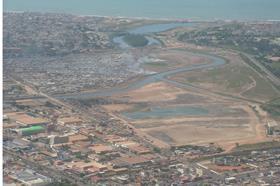Oil revenue, high growth and political stability are expected to generate extensive construction opportunities in Ghana. So how does the legal regime work?

The force is with Ghana, where the positive trends seen in much of Africa over the past decade have been particularly evident. Ghana has experienced a long period of political stability, with five successive free and fully-contested elections over the past 20 years, resulting on two occasions in a peaceful change of government.
This stability has encouraged international agencies and investors to make substantial investments in the Ghanaian economy, boosted by oil revenues now that the substantial “Jubilee” oilfield off Ghana’s coast has come on-stream. These investments, coupled with contributions from the important agriculture and mining sectors, and an increasingly vibrant consumer and services sector, resulted in the highest GDP growth rate in the world for 2011 - 12-13%. Growth rates consistently in excess of 7% are predicted over the coming years despite the effects of the global recession, and the development of housing and infrastructure are urgent government priorities. Together with the development of the nascent oil and gas industry, the construction sector is expected to continue to generate extensive opportunities for overseas contractors, consultants and suppliers.
For those in the construction industry doing business in Ghana, a good understanding of the local legal regime is crucial. So what are some of its key features?
Procurement
Procurement by Ghanaian government agencies is governed by the Public Procurement Act 2003, although there are exceptions for the petroleum and mining sectors. “Local content” legislation, which stipulates minimum levels of local participation in all projects in the oil and gas industry, is expected shortly; the legal requirements, influenced by the framework applied in Trinidad and Tobago, are currently making their way through Ghana’s legislature.
Corruption and ease of doing business
Ghana has signed and ratified the UN Convention Against Corruption. It currently ranks 63rd out of 183 for “ease of doing business” (IFC “Doing Business” Report 2012) and scores 3.9 out of 10 with regard to corruption (Transparency International Corruption Perceptions Index 2011). This shows that, while there is still more to do in these areas, Ghana compares very favourably with neighbouring countries and with the major emerging economies. On both counts, Ghana scores significantly better than Brazil, China, India and Russia.
The courts
Ghana has a common law legal system based on the English model, with which it retains many close parallels. English legal authorities can be cited with persuasive weight in the Ghanaian courts, except where they conflict with the Ghanaian constitution, legislation or case law. The court hierarchy in Ghana consists of the High Court of Justice, the Court of Appeal and the Supreme Court of Ghana. Commercial disputes are dealt with by the Commercial Division of the High Court. This specialist court, which applies rules and procedures aimed at encouraging the swift resolution of disputes, was set up in January 2005 to deal more effectively with commercial disputes.
Arbitration and ADR
The Ghanaian government has been active in its encouragement of alternatives to the courts for dispute resolution, with the aim of easing the burden imposed on the courts by a frequently excessive case-load. This is reflected in the passing of the Alternative Dispute Resolution Act 2010, which came into force in May 2010 and comprehensively revised the law governing domestic and international arbitration in Ghana. Ghana consequently has a modern legal framework governing arbitration which reflects current international standards and practices. The Act also includes provisions governing and encouraging mediation, and both the courts and arbitrators can recommend or refer disputes for settlement by mediation.
Ghana has signed up to the New York Convention on the Recognition and Enforcement of Foreign Arbitral Awards, and the Alternative Dispute Resolution Act expressly provides for the High Court to enforce foreign awards made under the Convention that are not subject to an appeal. Enforcement can only be refused in a narrow set of circumstances.
Bilateral investment treaties are in force between Ghana and seven other states, including the United Kingdom. The treaty with the UK provides for reference of investment disputes between an investor and the Ghanaian government to determination by the International Court for the Settlement of Investment Disputes.
For those looking to do business in Ghana, the combination of a fast-growing economy, political stability and a modern legal outlook could amount to a golden opportunity in the land once known as the Gold Coast.
Kwadwo Sarkodie is a partner in the Construction & Engineering Group at Mayer Brown International LLP



























No comments yet